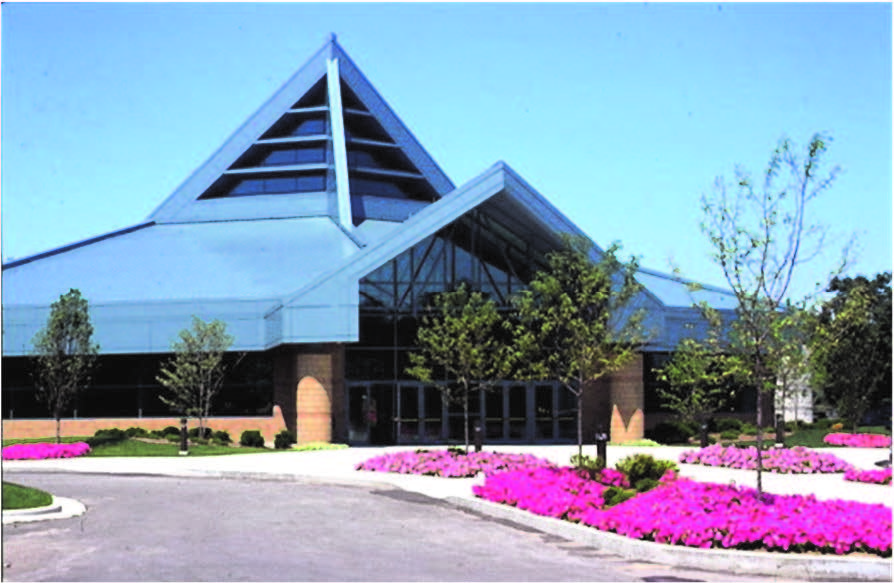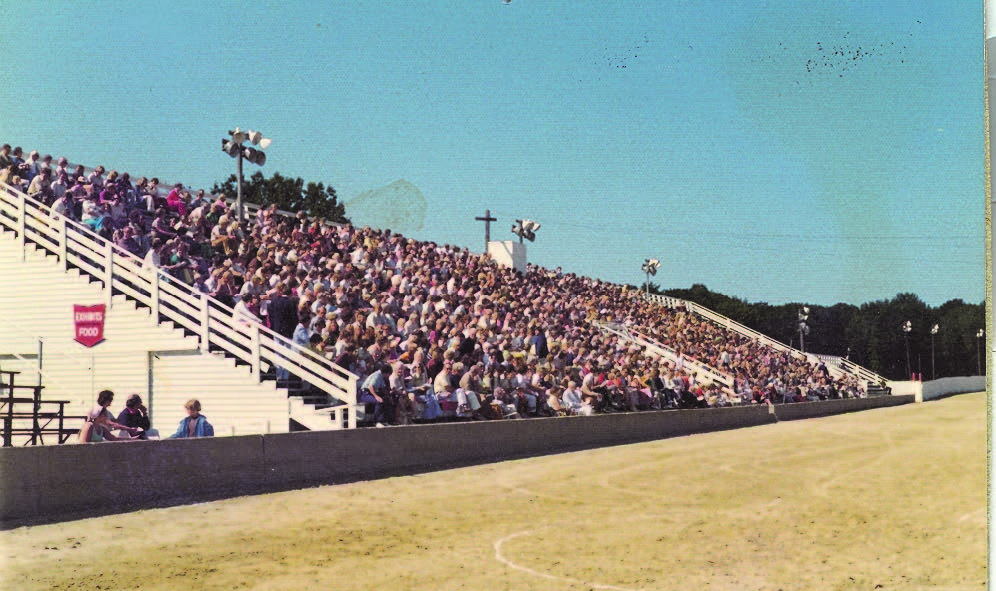

Because of the church’s growth, in 1988 an “Open Doors for Christ” campaign was launched with the goal of building a new sanctuary. At this time there were 900 families and 2,400 church members with 1,400 attending worship weekly. The goal of the campaign was to raise $4,000,000 for a new 1,600 seat sanctuary, surrounding fellowship space, expanded parking, and remodeling of the existing sanctuary. Ground breaking occurred on April 16, 1989; and a new tag line was introduced: “Where life begins again.”
When the new steeple was put in place, Rev. Brown climbed to the top and prayed that God would use this building for His Glory. Between September 6 and 23, 1990, the dedication of the new facilities included an area open house, worship services, a dedication picnic, and laying of the cornerstone “To the Glory Of God” on September 15. On September 23 the new Hymnal for Worship and Celebration was introduced. Also in 1988 the Dogger property was obtained from Holland Public Schools in exchange for a parcel of land owned by the church. This property was from Graafschap Road east to the Holland Middle School.
In 1990 Rev. Bill Boersma was called to Christ Memorial as Minister of Education beginning what would become a long and successful ministry with the church. In 1993 the American Church Growth Institute identified Christ Memorial as one of the fastest growing churches in non-metropolitan areas of the U.S. In 1991, 1992, and 1993, a Festival of Salt and Light was held with a focus on outreach to the community, the nation, and the world. During this season Christ Memorial became involved in the start of Maple Avenue Ministries in the first joint venture between the Reformed and Christian Reformed Church. It also became the mother church for Good Shepherd Community Church in Franklin, Tennessee, and had a missionary-in-residence
In 1993 under the leadership of Executive Pastor Rev. Wes Kiel and Rev. Neva Evenhouse, the new governing structure of the church was put into place. The structure went from a 12-elder and 12-deacon consistory to a separate Board of 12 Elders with 130 pastoral care elders, a board of 12 deacons, and an administrative consistory consisting of six elders and six deacons. This change resulted in elected congregational leaders using their gifts more appropriately. This model also became popular with other churches.
In 1995 Rev. Brown accepted a call to become the Henry Bast Professor of Preaching at Western Theological Seminary. His final sermon was based on the Apostle John’s letter to the church in Ephesus in the Book of Revelation in which John praises the church for its works, toil, and patient endurance, but admonishes it to not forget its first love.
